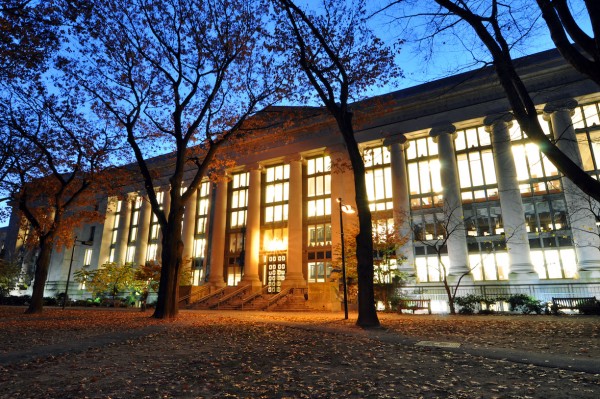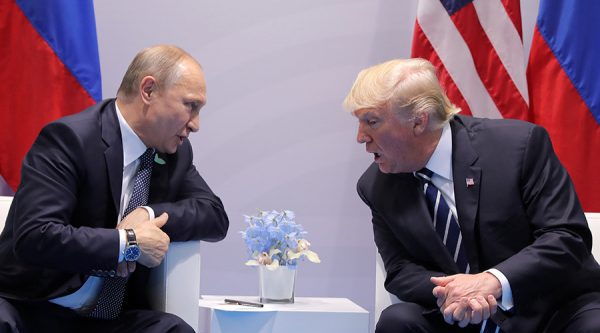 Parler
Parler Gab
Gab
- Federal judge extended block on Trump’s visa freeze targeting Harvard students, citing potential harm.
- Harvard claims policy retaliates against its refusal to curtail campus speech on Israel and antisemitism.
- Trump administration cites national security, alleging foreign influence and inadequate campus oversight.
- Over 6,800 international students affected as case tests executive authority vs. academic freedom.
- Ruling follows broader clashes between Harvard and Trump’s policies on funding and free speech.
Legal Stalemate Over Retaliation Claims
Harvard sued the Trump administration in late May after the Department of Homeland Security revoked its Student and Exchange Visitor Program (SEVP) certification, a prerequisite for hosting foreign students. The university argued the move targeted its refusal to implement federal mandates demanding stricter oversight of campus speech, including episodes of antisemitism tied to campus protests over Israel. In court briefs, Harvard called the policy a “smokescreen” for retaliation, emphasizing that its 6,800 international students—nearly a third of its student body—are “collateral damage.” “These students are pawns in the government’s escalating campaign of retaliation,” the university stated, urging Judge Burroughs to block broader visa restrictions imposed Monday by Trump’s proclamation, which suspended foreign entry for study at Harvard for six months. The judge, while issuing the temporary reprieve at a June 16 hearing, signaled skepticism toward the administration’s national security rationale. “The government faces an uphill battle to show irreparable harm won’t come to Harvard [if the] policy proceeds,” she said, scheduling a ruling on a longer preliminary injunction within days.National Security Claims and Institutional Accountability
The administration defended its decision by invoking dual mandates: reining in foreign influence and countering supposed campus security gaps. DOJ lawyer Tiberius Davis argued in court that Congress granted Trump “unquestioned authority” under immigration law to restrict student entry. Secretary Marco Rubio, overseeing visa policy, accused Harvard of lax oversight of foreign money and student conduct. “We don’t trust them to host foreign students,” Davis told the court, citing Harvard’s acceptance of Chinese funding and its response to prior campus unrest. Critics, including Harvard’s legal team, counter that the policy conflates legitimate concerns with partisan vendettas. “The citation of national security here is pretextual,” said Harvard attorney Ian Gershengorn. “This is a First Amendment assault on our constitutional right to govern our curricula without political coercion.” The alleged security risks mirror long-standing GOP critiques of academia, particularly universities’ perceived tolerance of anti-Israel sentiment. Protests over Israel’s Gaza War in late 2024 exacerbated tensions, prompting calls for campus oversight.Future of Academic Freedom in the Courts
The case is part of a broader legal battle over Harvard’s autonomy. Trump’s administration has frozen $2.5 billion in federal grants and proposed revoking the school’s tax-exempt status, citing excessive endowment growth—a move Harvard likens to “financial bullying.” Burroughs has become a focal point in these disputes. In 2023, she blocked Trump’s first bid to tighten SEVP regulations, ruling traditionally reserved judicial authority over federal agencies. “When the government cites security ambiguities, courts have a duty to demand clarity—if not, institutions lose control of basic missions,” she opined at Monday’s hearing. The outcome could redefine state-academia relations, warns Jonathan Turley, a legal scholar at George Washington University. “This isn’t just about visas. It’s about whether the White House can weaponize immigration law to penalize private universities.”A Crossroads for Education and Sovereignty
While Harvard’s immediate struggle centers on preserving enrollments and funding, the case’s implications extend far beyond campus gates. At its core, the litigation pits Cold War-era security protocols against modern academic values—a clash amplified as global students become geopolitical pawns. Should Trump’s policy withstand judicial review, universities may face tighter scrutiny from federal authorities, altering their roles as platforms for free inquiry. Conversely, Judge Burroughs’ full ruling, expected by June 23, could cement judicial checks on presidents’ immigration power—a precedent with ripple effects through future policy disputes. Either way, the global community watches closely: the decision will reaffirm whether American halls of higher learning remain sanctuaries for ideas—or arenas for statecraft. Sources for this article include: YourNews.com Reuters.com TheEconomicTimes.comMaersk to cut ties with companies linked to illegal Israeli settlements
By Laura Harris // Share
German fairytale forest to be cleared for WIND TURBINES
By Ramon Tomey // Share
Trump’s evolving Middle East policy: Peace deal collapses hours after announcement
By Finn Heartley // Share
Governments continue to obscure COVID-19 vaccine data amid rising concerns over excess deaths
By patricklewis // Share
Tech giant Microsoft backs EXTINCTION with its support of carbon capture programs
By ramontomeydw // Share
Germany to resume arms exports to Israel despite repeated ceasefire violations
By isabelle // Share










